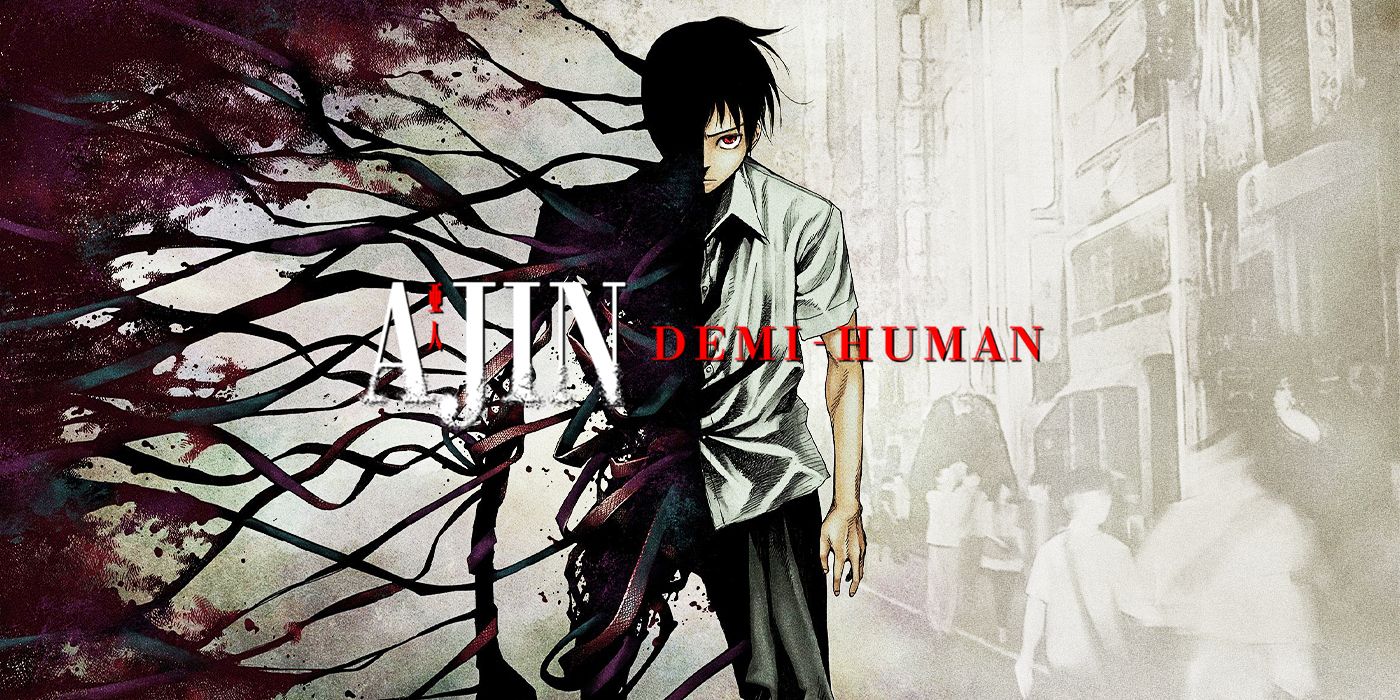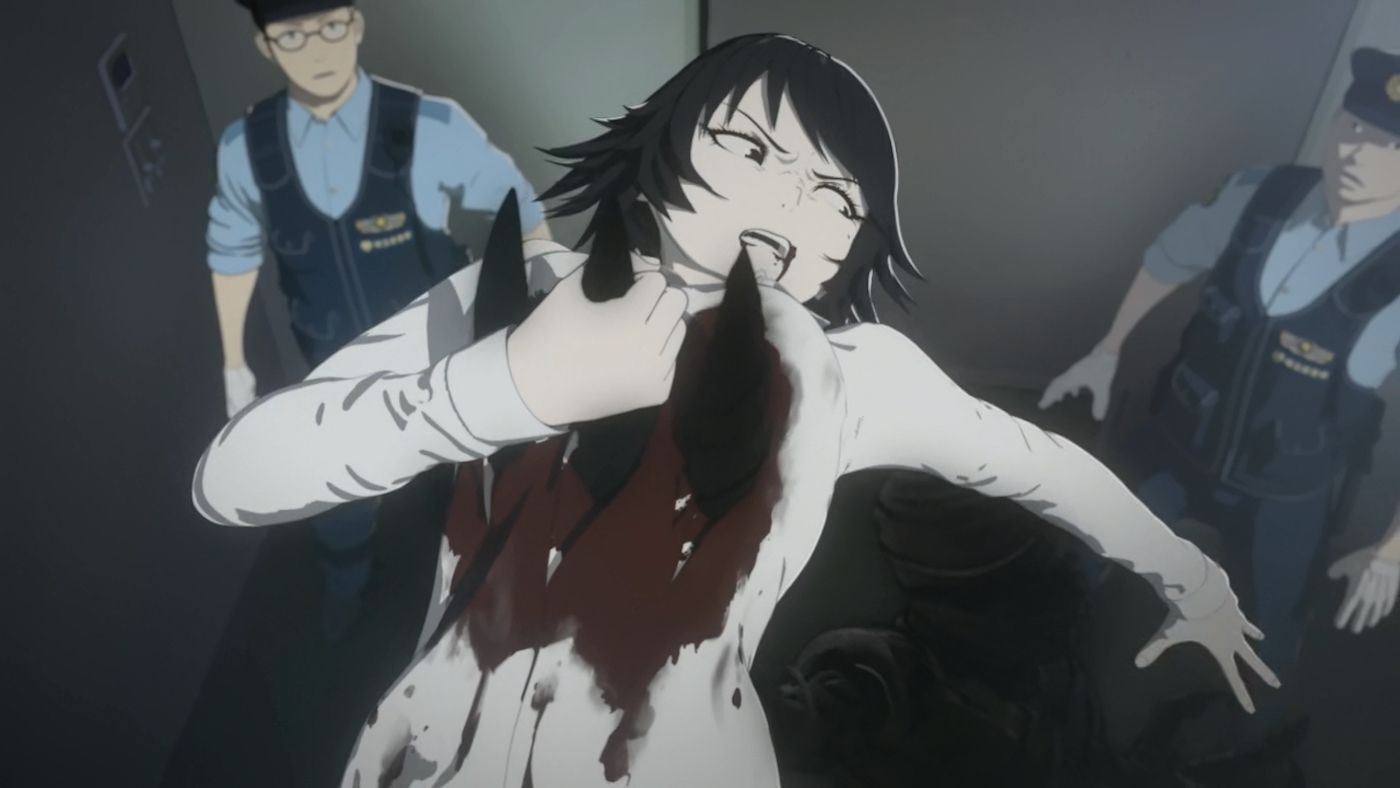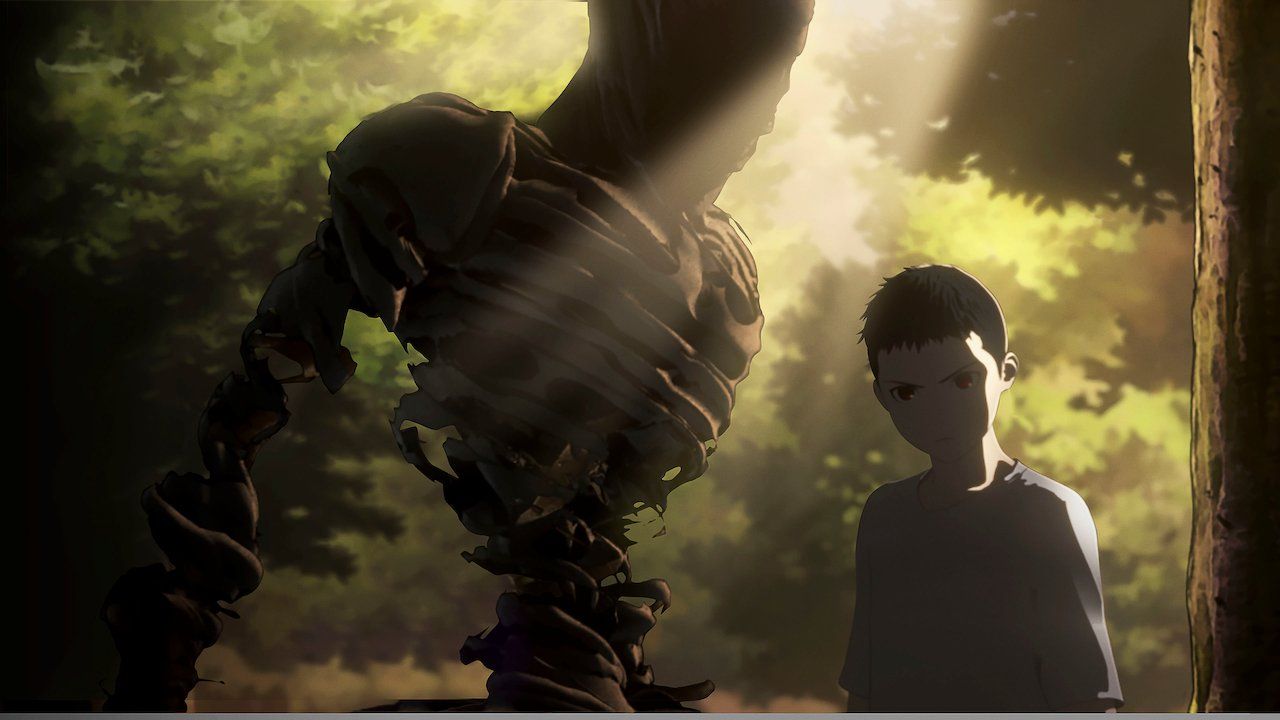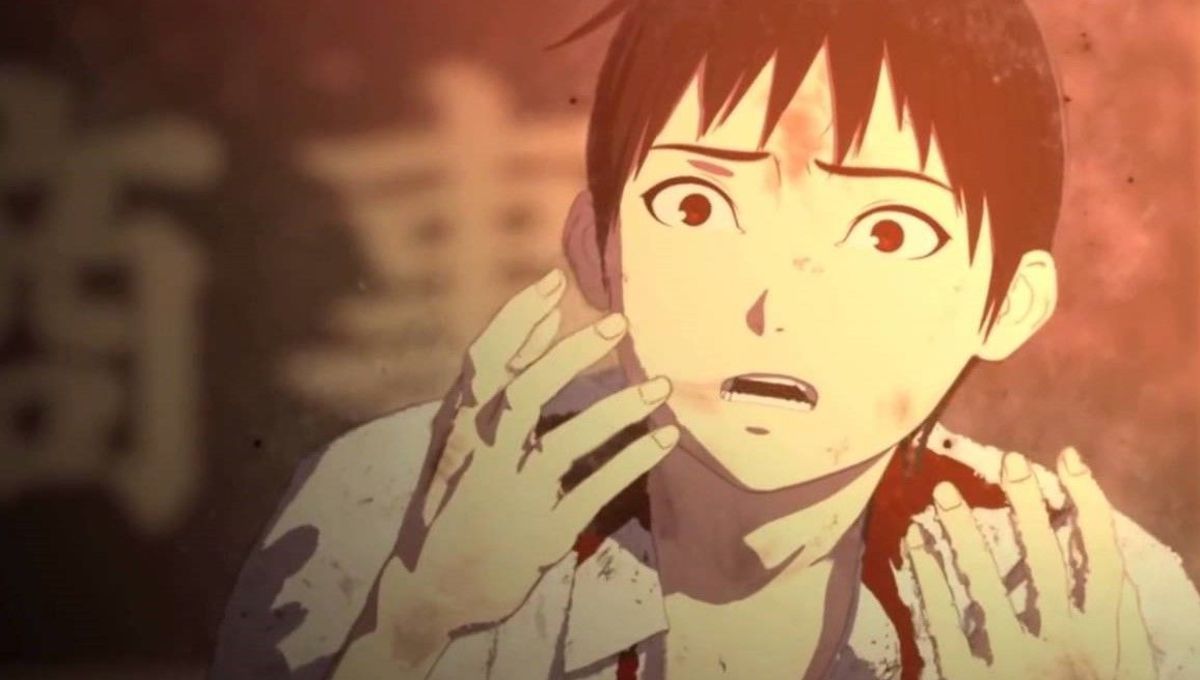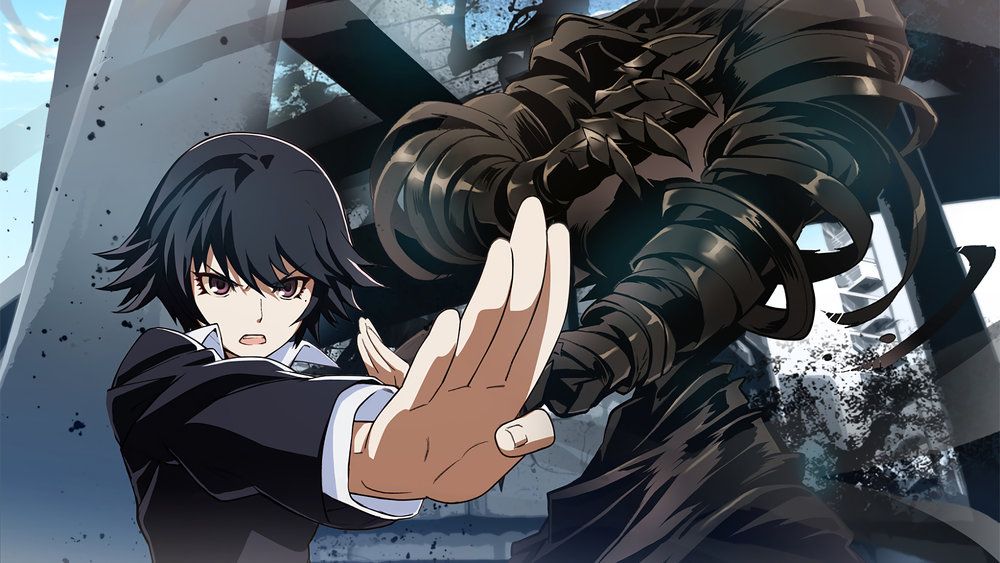Life has been, and always will be, full of big questions that will never be answered completely. Many of these questions will simply never be answered with any degree of certainty at all, while others will always be hotly debated with no clear answer in sight due to a myriad of opinions on the matter. Regardless, as people, we search out answers to these big questions. We mull them over, we form our opinions based on what information we have at our disposal, and we create works with our opinions and thoughts woven into them.
Such as, "what makes us human," right?
Humanity has been a topic of discussion in creative works since people could discuss it. What makes us human, what drives the human experience, and if humanity is ultimately a force for good or evil are only a few of the questions creative media explores, and each writer, artist, academic, and everyone in between has a unique way of attempting to answer these questions.
Ajin: Demi-Human (hereinafter referred to as simply Ajin) is a series that uses these questions and more as a way to explore the ethical and moral curiosities of humanity. For the unacquainted, Ajin is a 2016 anime series adapted from a 2012 manga of the same name. It centers around Kei Nagai, a seemingly callous and cold student that discovers he is an Ajin after being killed in a traffic accident. Within moments, Kei is being pursued by police trying to take him into custody; Ajins become property of the government once discovered and are incarcerated for the good of humans, who might be harmed by them. Kei manages to escape with the help of his childhood friend, Kaito, and later leaves Kaito behind to meet other Ajin who might be able to help him. This is where he meets Sato, who is hellbent on creating an Ajin uprising to take revenge on the governments who have caused harm to them. From there, events unfold that put Sato and Kei at odds.
From the very beginning of the series, we are meant to understand a hard fact: Ajin are not human. This is something the audience is told even before we truly understand what an Ajin is. We see that students are taught in school that Ajin are dangerous, we see people watching videos of Ajin being brutally murdered via close range gunshot to the head with little or no sympathy. As the series unfolds, you’re left to question why this is. After all, no one knows they’re an Ajin until they die. Death is what awakens the regenerative abilities that make them able to come back to life.
This is the first big question Ajin asks: what is a human?
In the context of the series, Ajin are not considered human because of two noted things: their effective immortality and the black ghosts they have, which are combative, dangerous entities only visible to other Ajin. However, this is an oversimplification of the issue. In Kei’s case, we see how quickly people turn on a newly discovered Ajin. Kei’s classmates went from seeing him as a friend to seeing him as a bounty, a monster, in just mere moments from the time of the accident to his regeneration. When his sister finds out that he is an Ajin, she claims that it’s disgusting that one of them hid in her family posing as a human. Obviously, no one knew Kei was an Ajin before that moment. He was human. Just like anyone else. So what changes in those few moments to make people completely reject someone’s human status?
After the accident, we see that Kei is clearly still human in terms of emotion, thought, and physicality. He comments on how painful death was. He expresses fear and anxiety about his condition, remorse for the way he treated Kaito, and concern for Kaito’s safety. He can still be gravely injured and feel pain, even if it heals more quickly, and his physical appearance undergoes no changes to identify him as an Ajin. He constantly struggles with his humanity, calling his status as a human being into question, but refuses to kill the human doctors that performed horrific experiments on him because he knows they won’t regenerate like he does.
Just like humans, Ajin are individuals with their own beliefs, feelings, and thoughts. They look like humans physically. Who they are as a person doesn’t change upon finding out they’re an Ajin. And yet, they are still separated from people who aren’t Ajin. They’re considered monstrous even though they often haven’t done anything wrong. This is a major point of the series. It’s asking you, the viewer, to decide: what is a human, and are Ajin human?
However, as said before, Ajin aren’t considered human within the context of the series. They’re considered objects, weapons, and tools to be used by the government. Government entities loan out Ajin to the military for use as soldiers and weapon test subjects, to medical organizations for drug tests, organ procurement, and experimentation, and they spend a great amount of time testing the limitations of the immortality of an Ajin through repeated muder in an array of gruesome ways.
This raises the second big question of Ajin: is the suffering of the few okay to save the many?
The use of Ajin in experimentation by real world standards is abhorrent. It’s clear throughout the anime that these are not humane, ethical experiments; they are intended to cause harm to the Ajin while having the added benefit of helping people in the process. Because Ajin never die, humans in the series don’t seem to have any issue with this exploitation. This is largely due to the way the government presents the Ajin during these experiments. They are always wrapped, head to toe, in bandages, so their faces aren’t seen. They have a number written over their face and not a name. No one has to see the person underneath as they undergo painful torture and experimentation. This form of dehumanization is something that is meant to impact both human and Ajin. For humans, it absolves them of the guilt they’d feel. For Ajin, it reminds them that they’re just an object.
Obviously, there are benefits to having a human subject who can't die to test drugs on. They can tell you how a drug made them feel. An Ajin is an infinite supply of organs in a world where organs are in high demand. They can be used to test surgical operations without the fear of death, they can test weapons and give accurate results. However, none of this matters. At the end of the day, this is another question posed to the audience. Is it okay to cause pain and suffering, over and over for an eternity, to a person in order to benefit the world as a whole? Should the government have the ability to capture these people in the name of the greater good and incarcerate them for use when they see fit, earning them tons of money while the person sees nothing?
A third, age old question Ajin asks is this: what defines the human experience?
We see this in a myriad of ways in the series. We discover that Kei, called the worst kind of person by his own sister, refuses to kill humans because he simply can’t stomach the thought of disappointing Kaito. He is fine with the torture he’s facing as long as Kaito is safe. His experience is largely driven by his care for his friend and his want to be a better, more caring person to others.
Yu Tosaki is introduced as a no nonsense, calloused person only concerned with completing a goal. He seems to be obsessed with the money he can earn by hunting down Ajin. We find out that the true reason he’s so invested in the payday of catching Ajin is because his fiancee, Ai, is in a coma, and without insurance, it’s difficult to pay the large fees necessary to keep her alive and attempt new treatments. He will do anything for her, even if that means doing things that harm others. His experience is driven by his love for her.
Koji Tanaka suffered cruel experiments for ten years at the hands of the government. While he is initially shown to have an absolute hatred for humans, we see moments of great compassion from him that create doubt in his mission to achieve rights for Ajin through violence. Koji’s experience is driven by his confliction, convictions, his want to give people like him a better life.
These are just a few examples, but they highlight a few similarities between their experiences: connection to other people, conviction, and the desire to help. These are things many people would say are universal human experiences. We’re social creatures that desire connections with others and we all have causes we fight for that have shaped our being. Conflict is something all people face, and it’s something that has shaped humanity throughout history. Of course, these aren’t the only things that define the human experience, but this is yet another question Ajin asks the audience about humanity. What is the universal human experience, if there is one, and if Ajin experience it, are they not human as well?
Grey morality is a noticeable pattern in Ajin. Almost all of the characters exhibit it at some point, particularly in the case of Yu Tosaki, and that is essential to the world they live in. Their society is not about thriving. It’s about surviving.
This is another big and timeless question Ajin poses: are people fundamentally good or evil?
This is a question that is answered in the series, and it’s a resounding...neither. Ajin only has one character who might be considered completely good, and that’s Kaito. He is selfless to a fault, almost never complains or gets angry, and aims to help everyone he can. The series also has one character that might be considered completely evil: Sato. He enjoys chaos and killing, and is incredibly merciless to anyone in his way. These are the two outliers. Every other character is shown doing questionable things for the sake of others and in the sake of survival, and this is true of real people. Few things in the world are black and white, and when it comes to extenuating circumstances, a person’s view on things can change in an instant to protect themselves or others. Still, Ajin presents this in such a way that it’s still something for people to ask themselves by presenting a few different perspectives. Are people either completely good or evil? Or is it their circumstances that have formed them into who they are?
Ajin: Demi-Human is a fascinating exploration of humanity and human nature, and leaves the audience asking themselves many tough questions about humanity, such as what a human is, if the suffering of a few is justified to save the many, what defines the human experience, and whether people are fundamentally good or evil. These are central questions the anime answers in its own way, but they’re also something asked to the audience to drive their opinions on the plot and characters within the series. The choice to use Ajin, who are human in every sense of the word except for their immortality, is something that really drives these themes forward and allows for many interesting examples of how people relate to each other and how society can shun certain populations for no logical reason because of social programming. These aren’t the ideas you expect to be explored so deeply in the series when you first start it; you expect something with a bit of gore and edge that’s enjoyable and maybe has a bit of “we live in a society” meme potential. However, upon inspection, Ajin is a series that aims to ask some big questions and make you a bit uncomfortable with the answers you might find within yourself.

